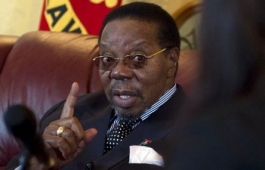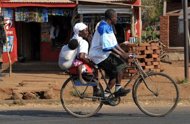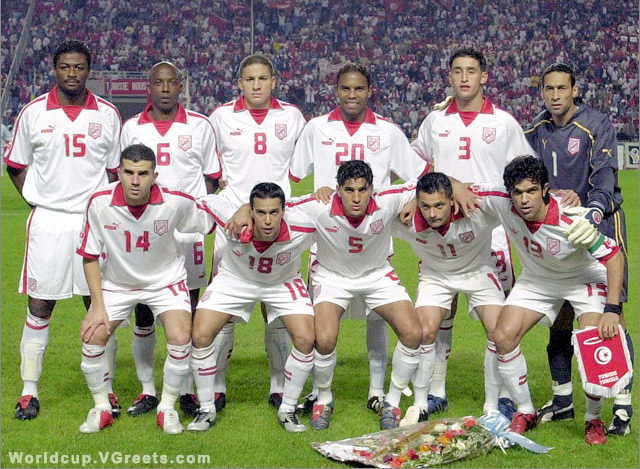 The start of a UN-brokered dialogue last week between President Bingu wa Mutharika and his extra-parliamentary opposition has done little to ease the difficulties facing the ailing and increasingly inflexible 77-year-old president.
The start of a UN-brokered dialogue last week between President Bingu wa Mutharika and his extra-parliamentary opposition has done little to ease the difficulties facing the ailing and increasingly inflexible 77-year-old president.
Mutharika is part-way through his second, and constitutionally final, presidential term, and in poor health – he has prostate cancer and a serious but apparently related liver ailment. Widespread discontent over a tottering economy, surging consumer prices, declining public governance standards, and increasing intolerance by the ruling Democratic Progressive Party (DPP) to growing public criticism, exploded into public protests on 20 July 2011. Unusually brutal police reaction left 19 dead and hundreds injured, and forced human rights activists into hiding (see Vol 29 No 20).
Mutharika responded by purging the DPP and the Malawi Defence Force (MDF) of what he viewed as elements sympathetic to the protesters. But when he attempted to do the same thing to his Cabinet on 19 August 2011 (see Vol 29 No 21), he met with unexpected resistance. This appears to have been, in part, due to ministers’ unhappiness at Mutharika’s secondary motive for the reshuffle: strengthening the hand of his brother, Peter Mutharika, who Mutharika intends will stand as the DPP candidate in the 2014 presidential elections. Mutharika angrily dissolved the entire Cabinet and is currently ruling by decree.
This situation is not expected to last, but is fuelling tensions already running high in the government and the DPP before popular discontent exploded into protests in July.
Mutharika’s clumsy reorganisation of the upper ranks of the MDF following the protests has added to his problems. The reorganisation was intended to side-line MDF commander General Mark Chiziko and to remove senior officers Mutharika believed were unhappy with his harsh repression of the July protests. Instead it has triggered murmurs of dissatisfaction among middle ranking officers.
The dialogue with opposition representatives removed the immediate threat of further protests, providing Mutharika with a rare ray of sunlight in an extremely gloomy landscape.
Nationwide vigils at churches and mosques, postponed last month at the urging of a UN mediation team under UN political affairs department representative João Honwana, are now scheduled for 21 September 2011. Opposition groupings say they are going ahead despite the start of the UN-brokered dialogue last week (25 August 2011).
Apparently keen to divide his extra-parliamentary opposition, Mutharika has packed his Presidential Contact and Dialogue Group (PCDG) with Muslim and Christian clerics.
The PCDG is headed by retired Anglican Archbishop Bernard Malango and includes a diverse array of other clerics: Sheik Alhaji Alide Likonde (Quadria Muslim Association of Malawi), Sheik Alhaji Ali Kanyamula (Muslim Association of Malawi), Bishop Bvembwe (Malawi Council of Churches) and Dr Madalitso Mbewe (Calvary Family Church).
To ensure the group sticks to the presidential line, two party heavyweights are included as deputy chairperson and rapporteur respectively: Goodall Gondwe, former Finance Minister and DPP first vice-president since Mutharika’s post-protest reshuffle of the party leadership (see Vol 29 No 21), and Wakuda Kamanga, party-secretary general since the reshuffle.
Rounding out the group and seeking to broaden its demographic representivity are two traditional leaders, Paramount Chief Lundu and Inkosi ya Makosi M’mbelwa IV, and the lone woman, Catherina Munthali (Society for the Advancement of Women).
Malawi’s media, noting that all 10 members have links to the DPP, has already branded the grouping as a Mutharika tool. The Nyasa Times was particularly harsh, saying that while most of the members “are well meaning and generally good people”, the PCDG was doomed before it started.
PCDG terms of reference
• To act as a platform for contact and dialogue between government and various interest groups in the country including representatives of political parties, non-governmental organisations, women lobby groups, youth representatives, vendors, the business community, the media, the elderly, people with disabilities, and any concerned citizens.
• To mediate, guide, and propose ways of amicably solving any disputes and suggest how the people of Malawi can be united through mutual agreement, understanding, reconciliation, and tolerance in order to resolve any disputes among the people of Malawi with the view to safeguard the peace, security and stability of Malawi.
• To prepare and present reports of such contacts together with proposals of other groups on how issues raised by them should be addressed.
• To make public as appropriate the outcomes, understanding and agreements reached between the government, civil society, political parties and any other concerned citizens.
• To undertake any other such functions as may be assigned to them by the president.
On the other side of the table the extra-parliamentary dialogue group – also led by an Anglican bishop – has been consciously constructed to accommodate government sensitivities. To avoid antagonising Mutharika’s government, key activists Undule Mwakasungula (Malawi Centre for Human Rights and Reconciliation), Rafik Hajat (Institute for Policy Interaction) and cleric Moses Mkandawire (Church and Society) have been kept out of the six-person team.
It is headed by current Anglican Bishop James Tengatenga and includes: Martha Kwataine (Malawi Health Equity Network), Robert Mkwezalamba (Malawi Congress of Trade Unions), Dorothy Ngoma (Nurses’ Union), Robert Phiri (Public Affairs Committee) and group spokesperson Voice Mhone (Council of NGOs of Malawi).
The extra-parliamentary group, meanwhile, has kept its demands correspondingly modest (to the extent that they are described as “requests”). They include demands that:
• Mutharika terminates the public service salary his wife, former Tourism Minister Callista Chapola-Chimombo, earns as “ambassador for safe motherhood”;
• He undertakes to reinstate four university lecturers fired early in the dispute (see Vol 29 No 14) and issues assurances that academic freedom will be reinstated;
• He resolves his relationship with Deputy President Joyce Banda and normalises her position in government (see Vol 29 No 12). His attempt, apparently at the urging of his wife, to isolate Banda in government have contributed to tensions in the DPP and in government; and
• He establishes a complaints commission to investigate the circumstances of the killing of 19 protesters on 20 July, and to which victims of the police response to the protests can complain.
Even these “requests” – particularly that on Banda, who seems increasingly likely to defeat Peter Mutharika in the 2014 election (see Vol 29 No 14 and Vol 29 No 21) – may be more than Mutharika is willing to concede.
The interlocutors’ preliminary meeting on 16 August, facilitated by UN resident facilitator Richard Dictus, is already showing signs that while the strong clerical representation on both sides will achieve significant consensus, it will not necessarily satisfy either Mutharika or the protesters and the protest organisers.
Elements of the Malawi media already openly doubt its potential to resolve the dispute between the DPP government and much of its electorate. The presence of only two direct political representatives, both DPP members of the PCDG, suggests that outcomes will be relatively easy to reject and are likely to be skewed towards the status quo. This does not appear to provide a recipe for long-term stability.
Having initiated the dialogue, the UN appears keen to hand over responsibility for keeping the talks going: before flying out, the visiting UN delegation under Honwana indicated that once South Africa had assumed the chair of SADC’s Organ on Politics, Defence and Security it would play a direct mediating role in Malawi.
This will not be entirely unexpected for South Africa’s President Jacob Zuma and his presidential team – foreign affairs adviser Lindiwe Zulu, presidential spokesperson Mac Maharaj and political adviser Charles Nqakula. But it will add to an already heavy workload: they are already actively involved in mediating political transformations in Swaziland and Zimbabwe (with the possibility of the DRC fast approaching) and, through the AU, in attempting to contribute to Libya’s uncertain future.

.jpeg&w=60&q=100&h=60)





.jpeg&w=60&q=100&h=60)




